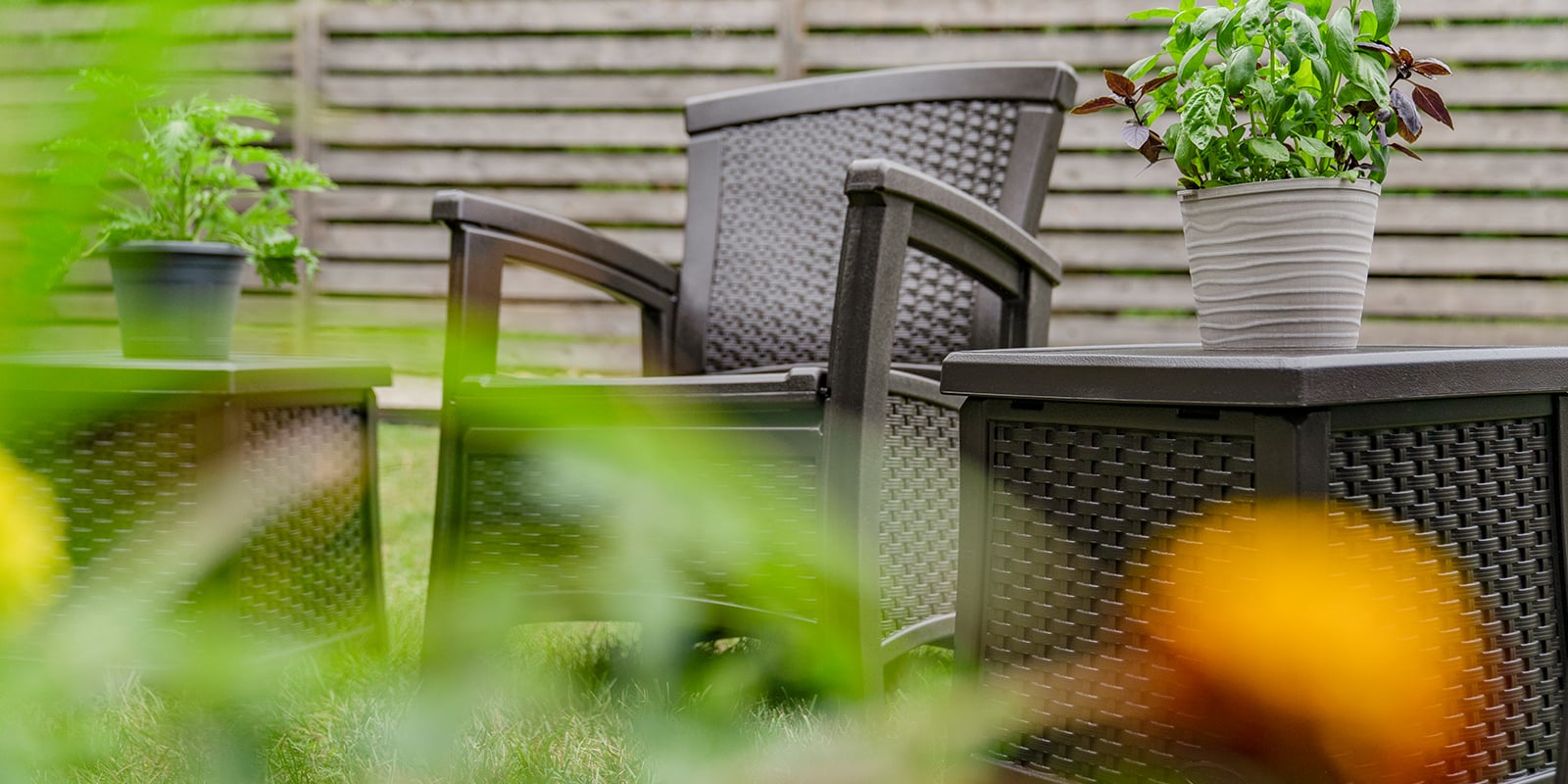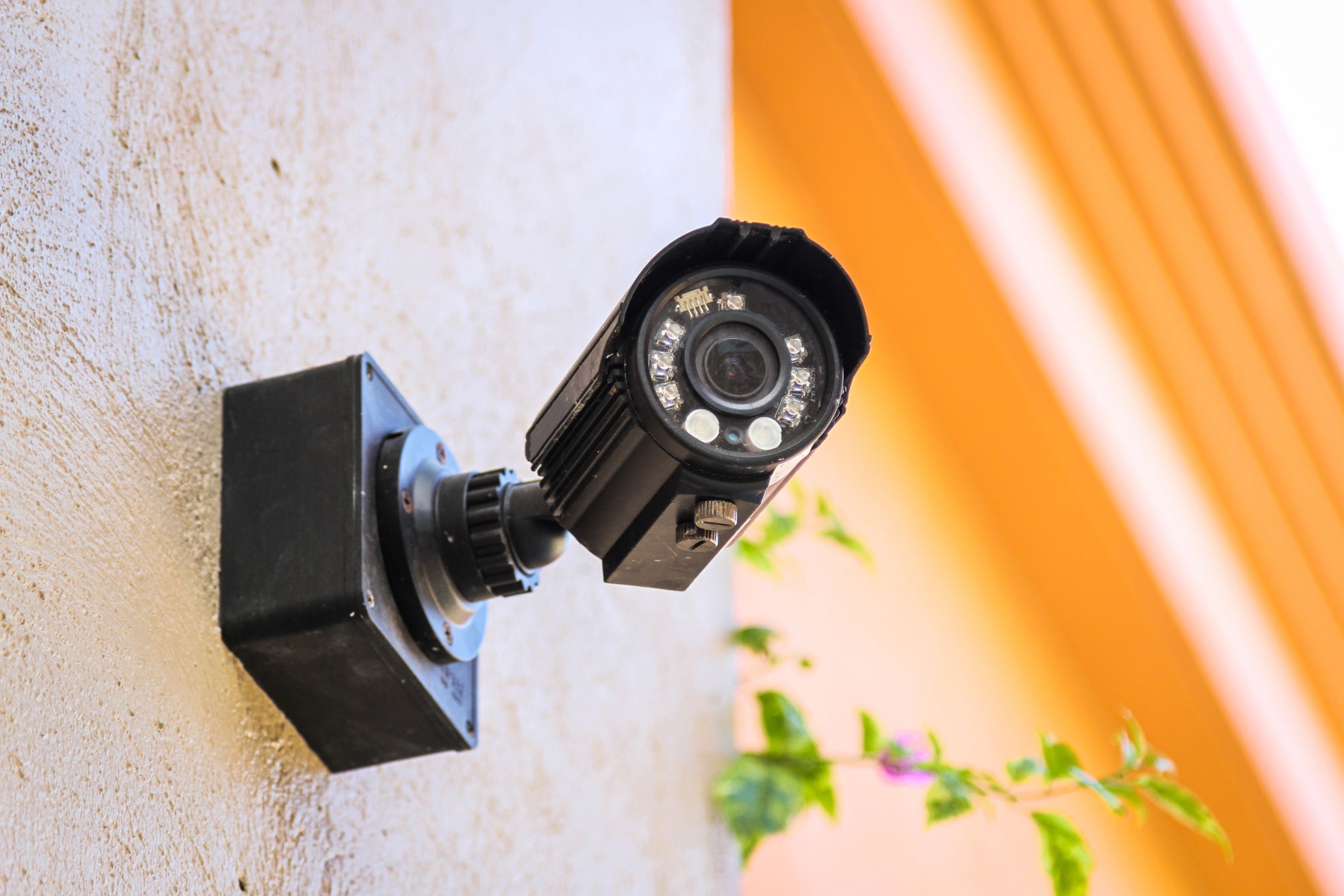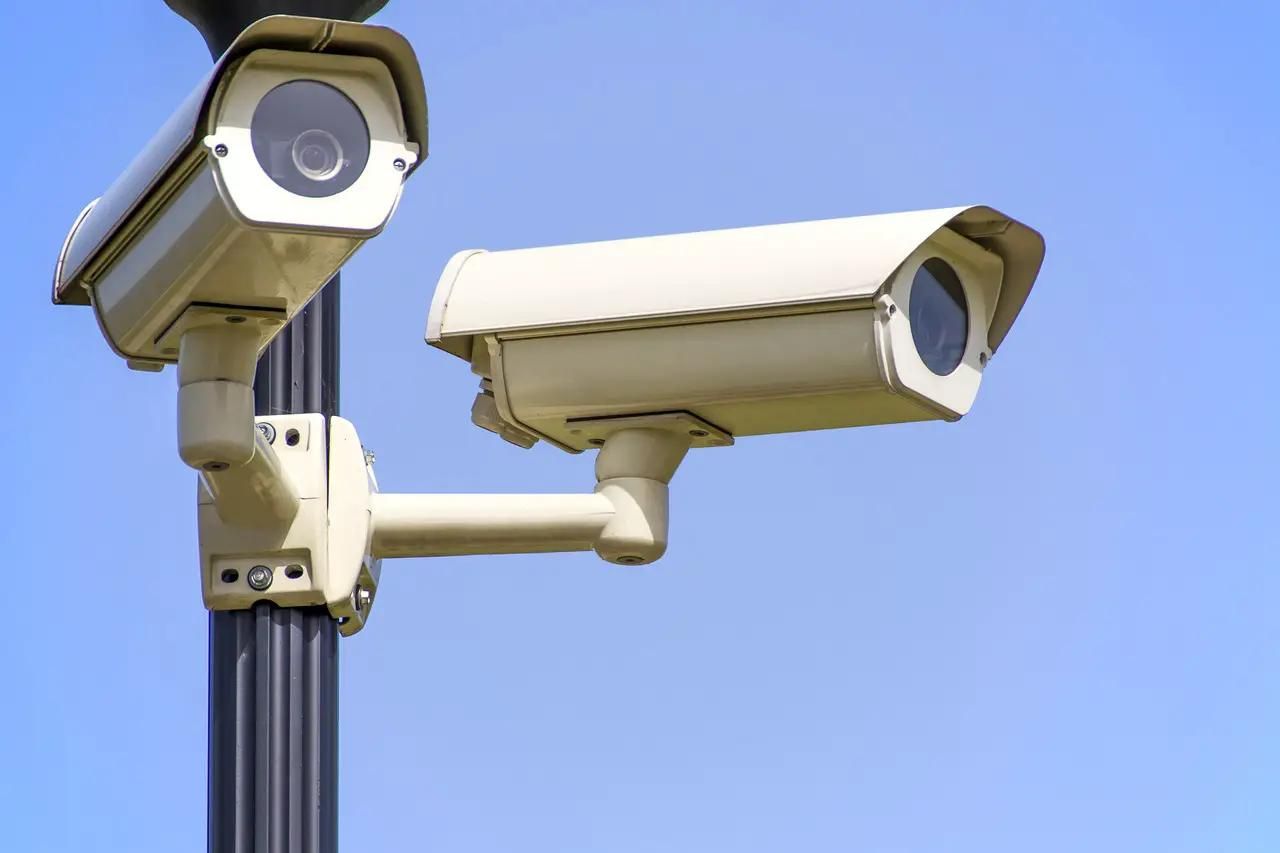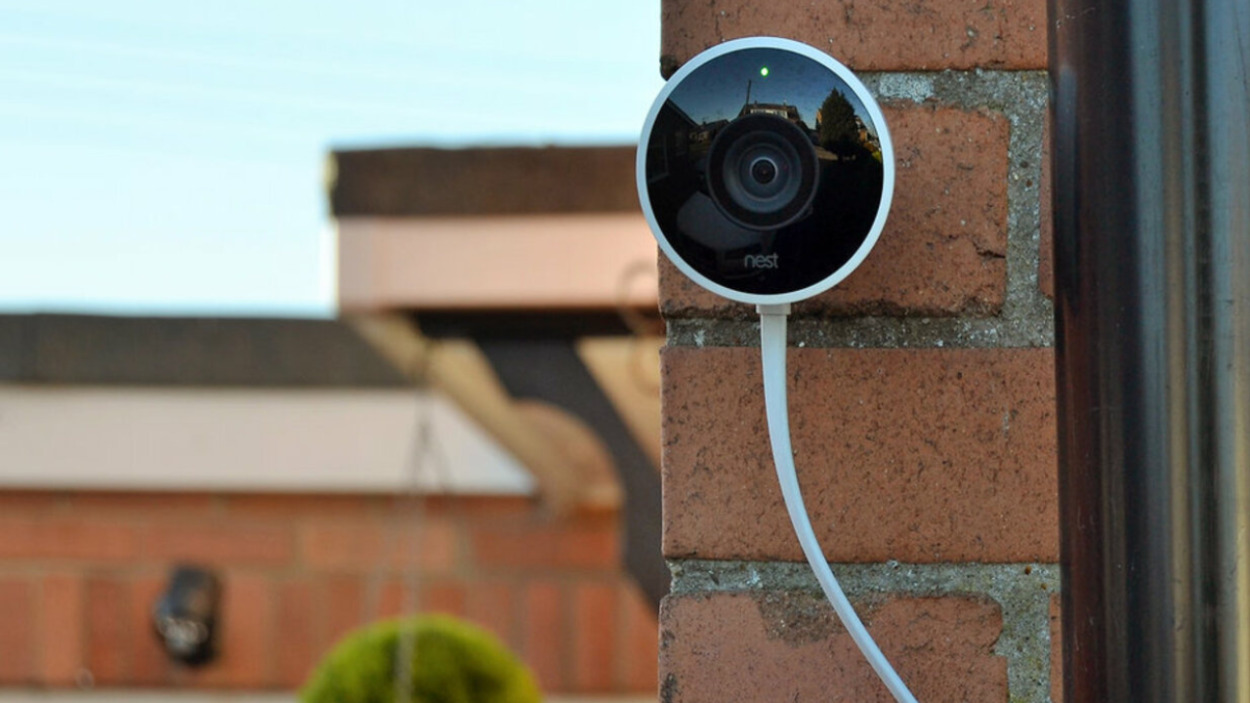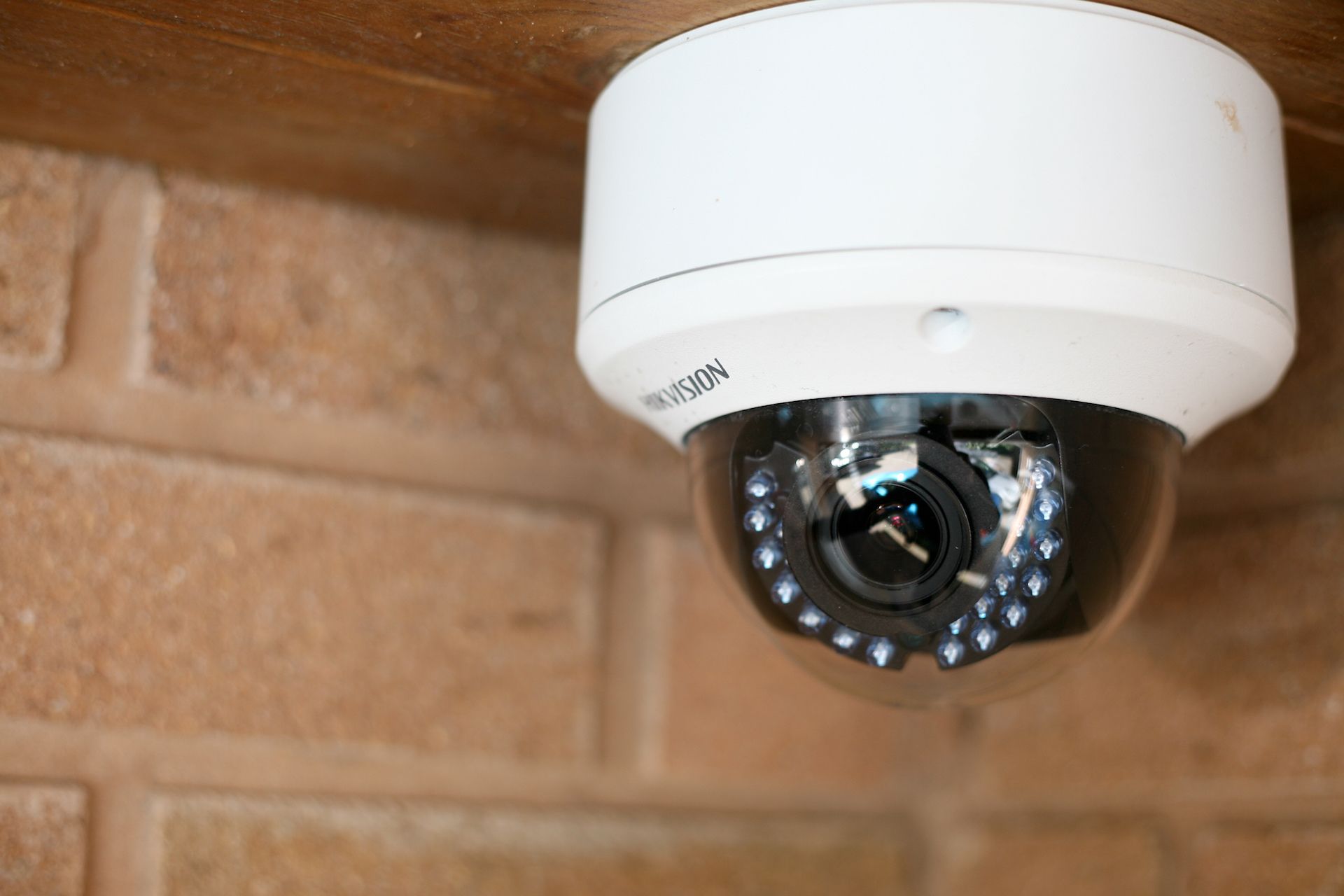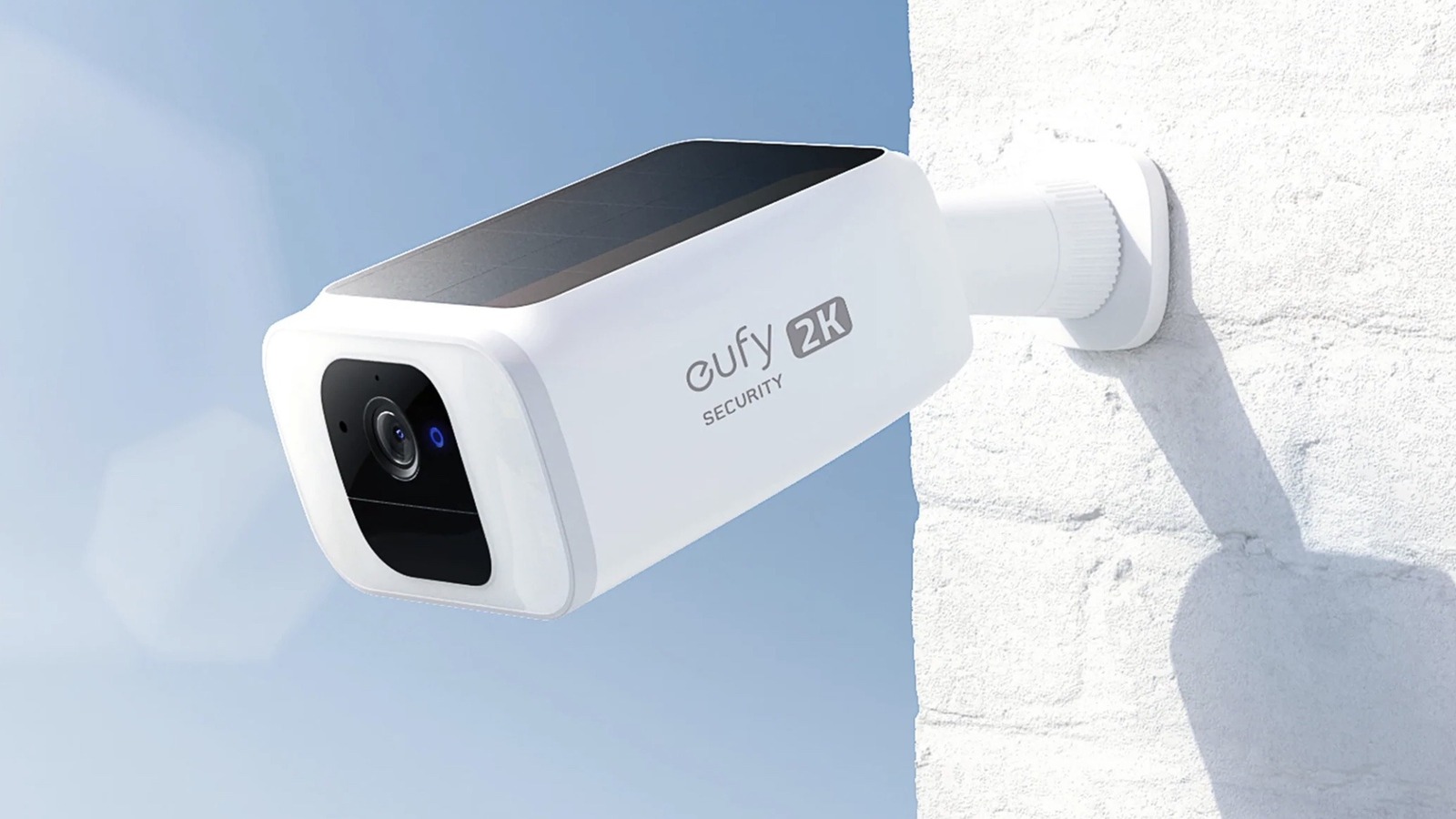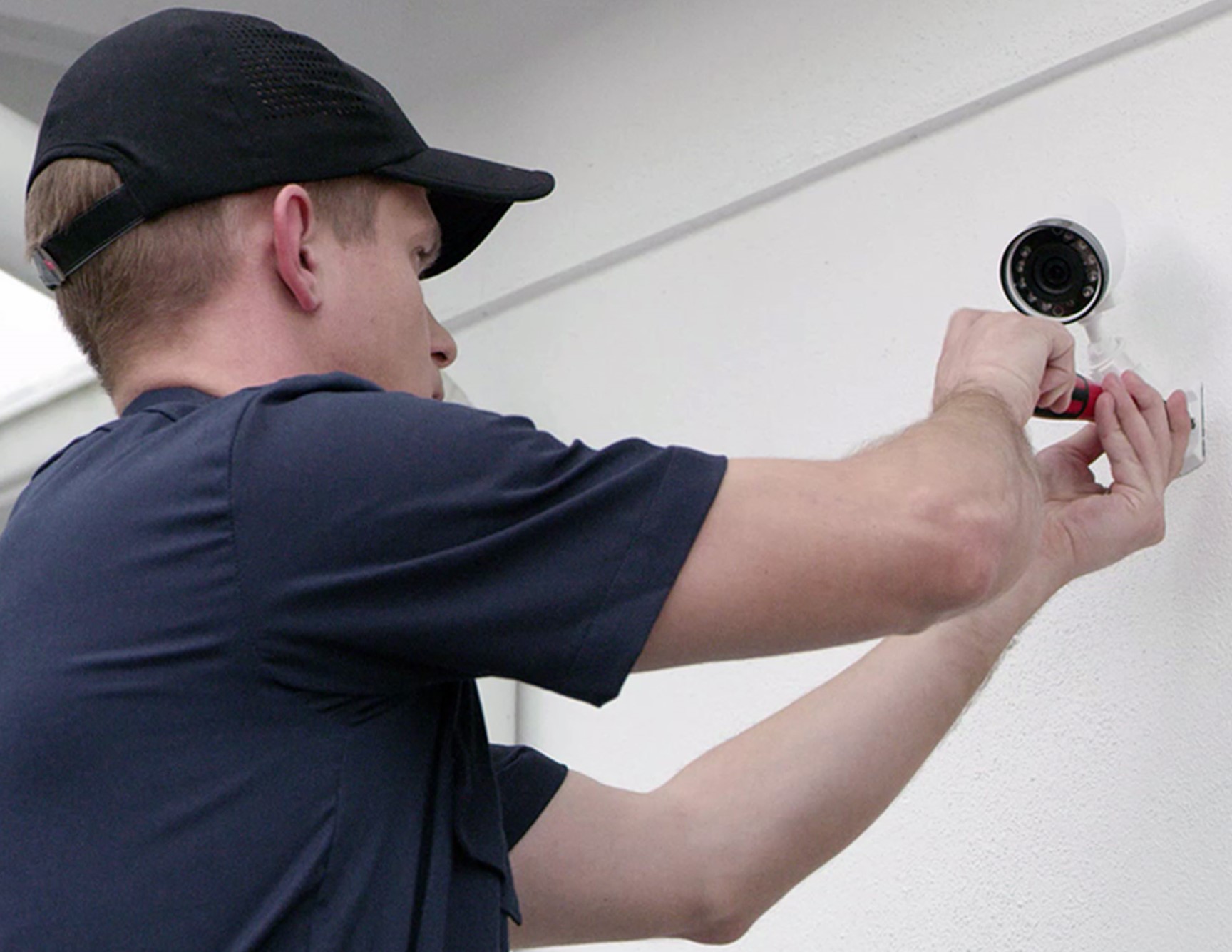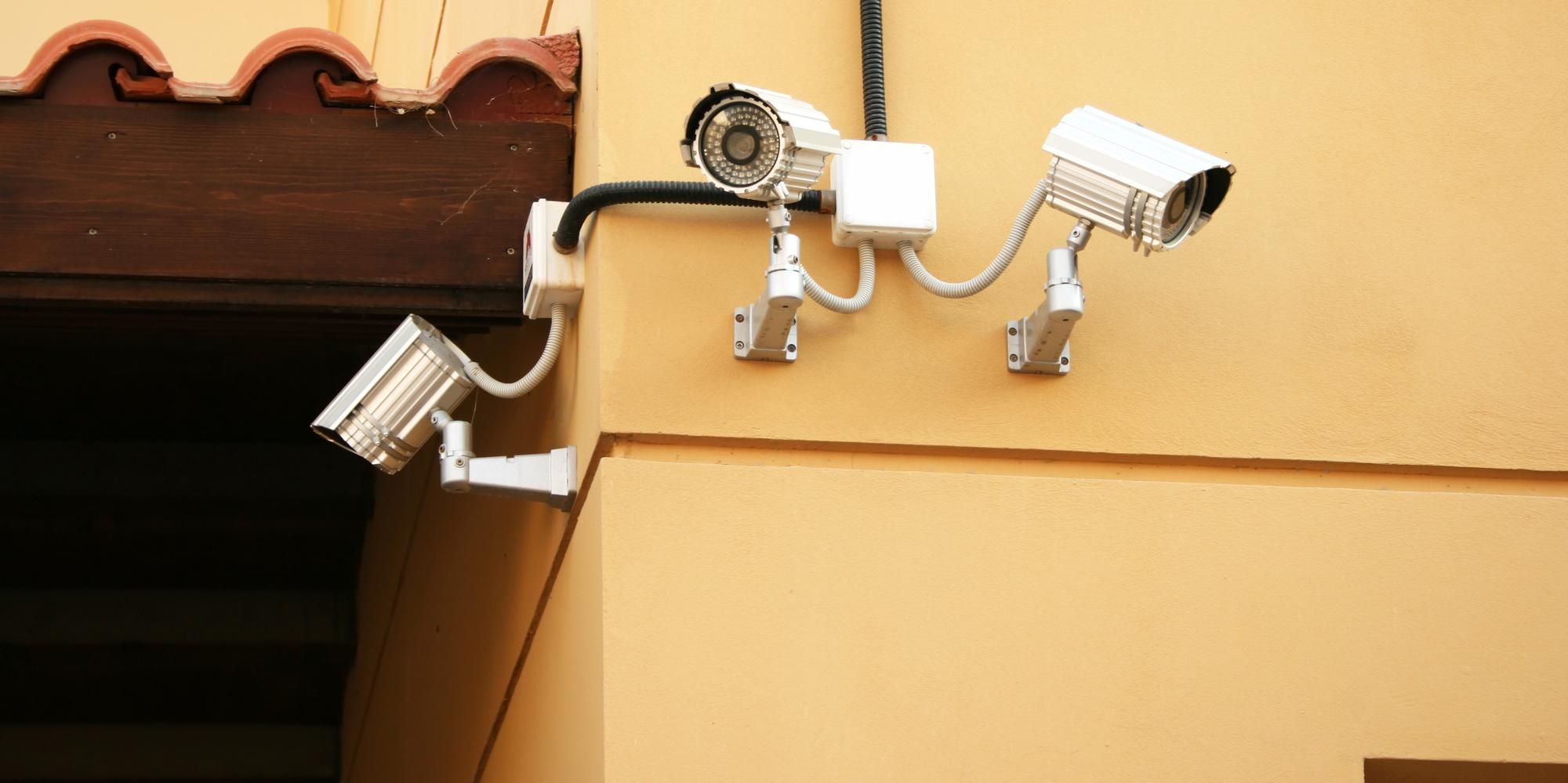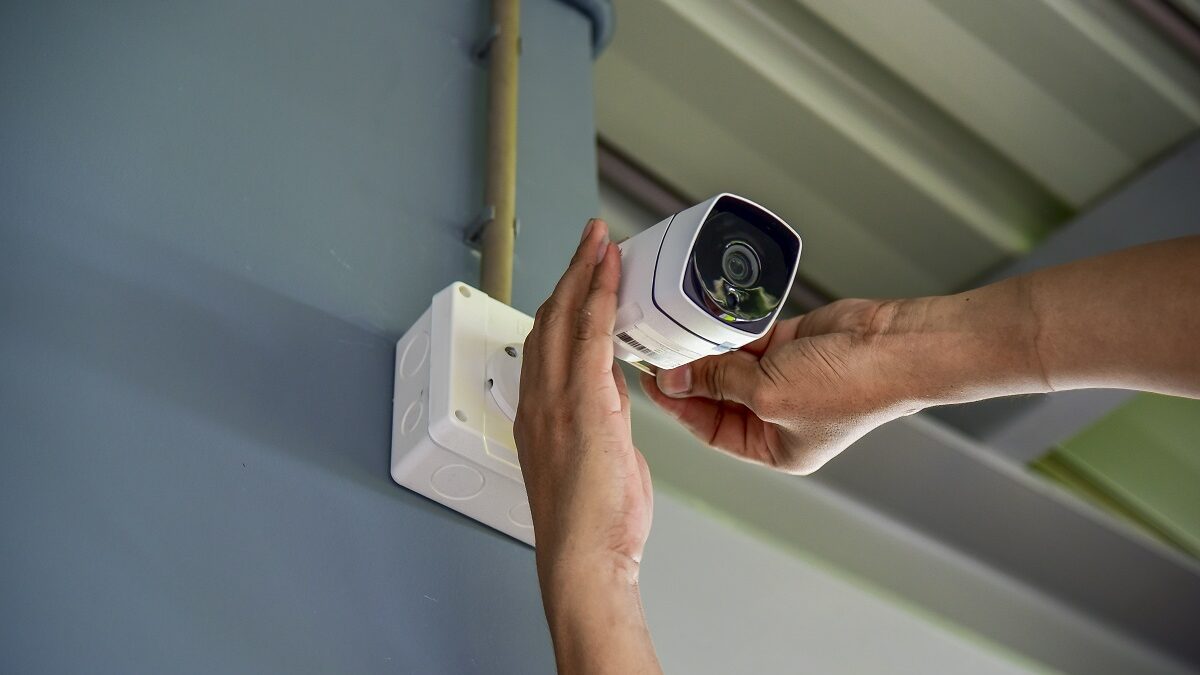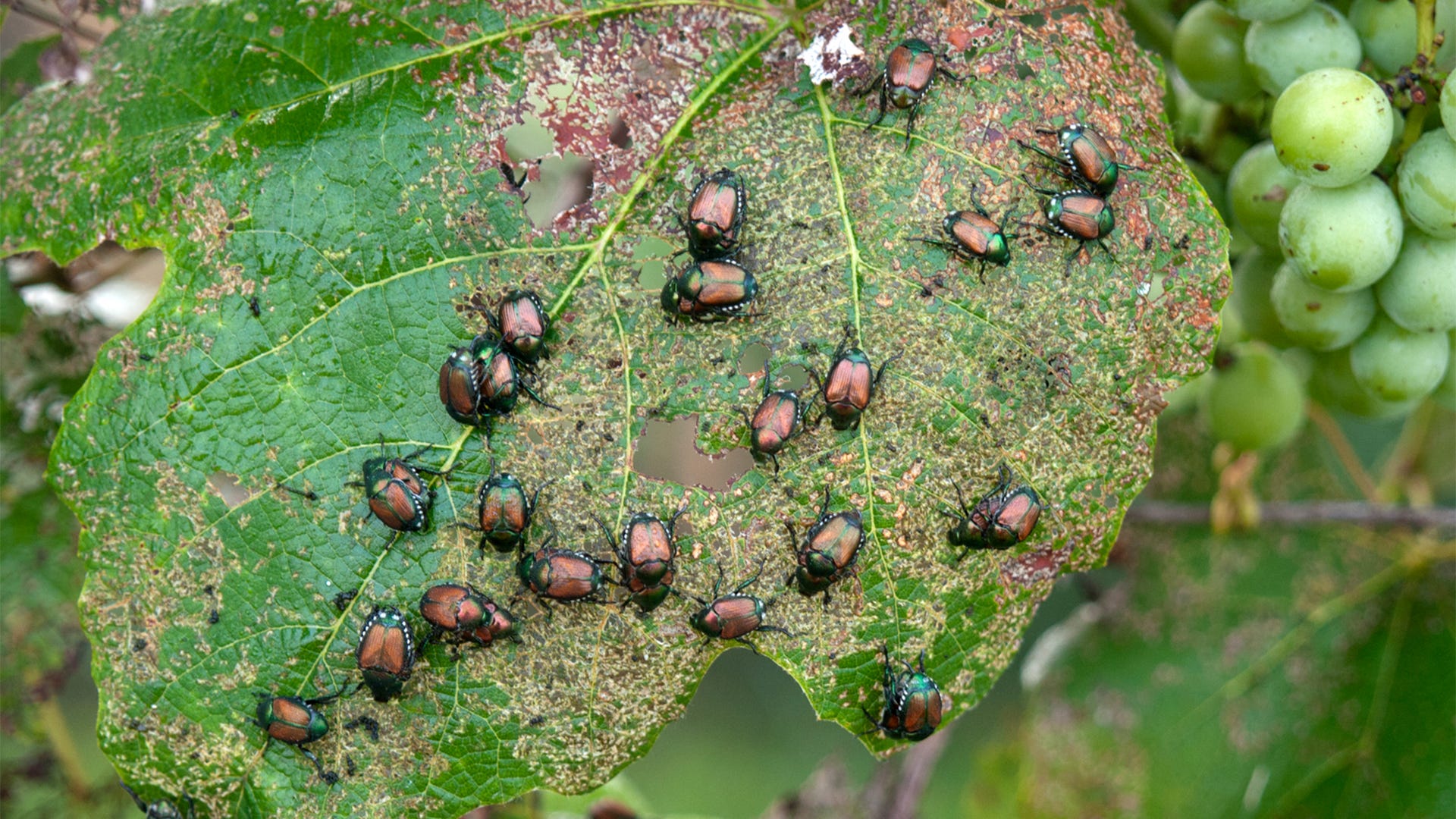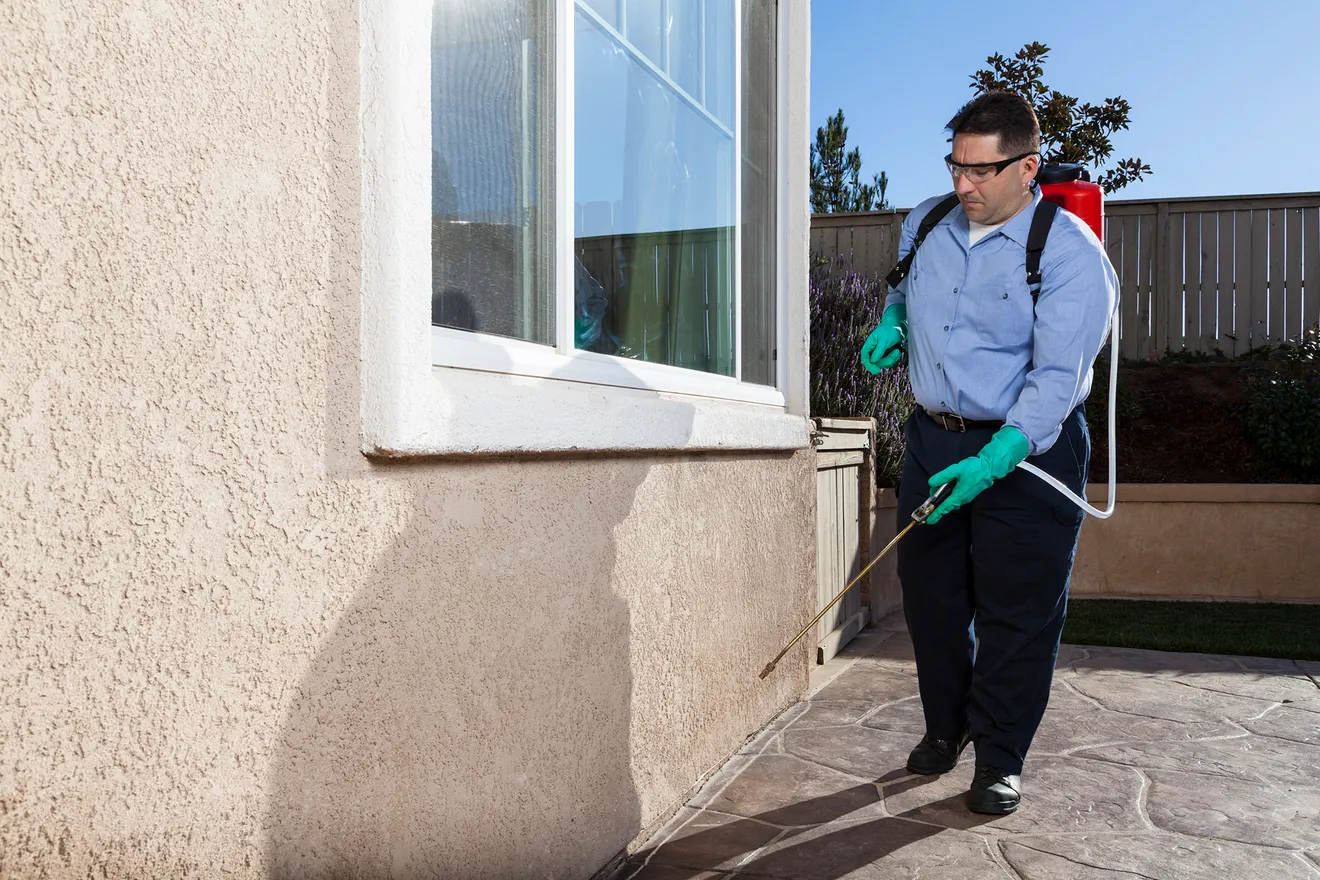Home>Home Security and Surveillance>How To Keep Bugs Off Security Cameras
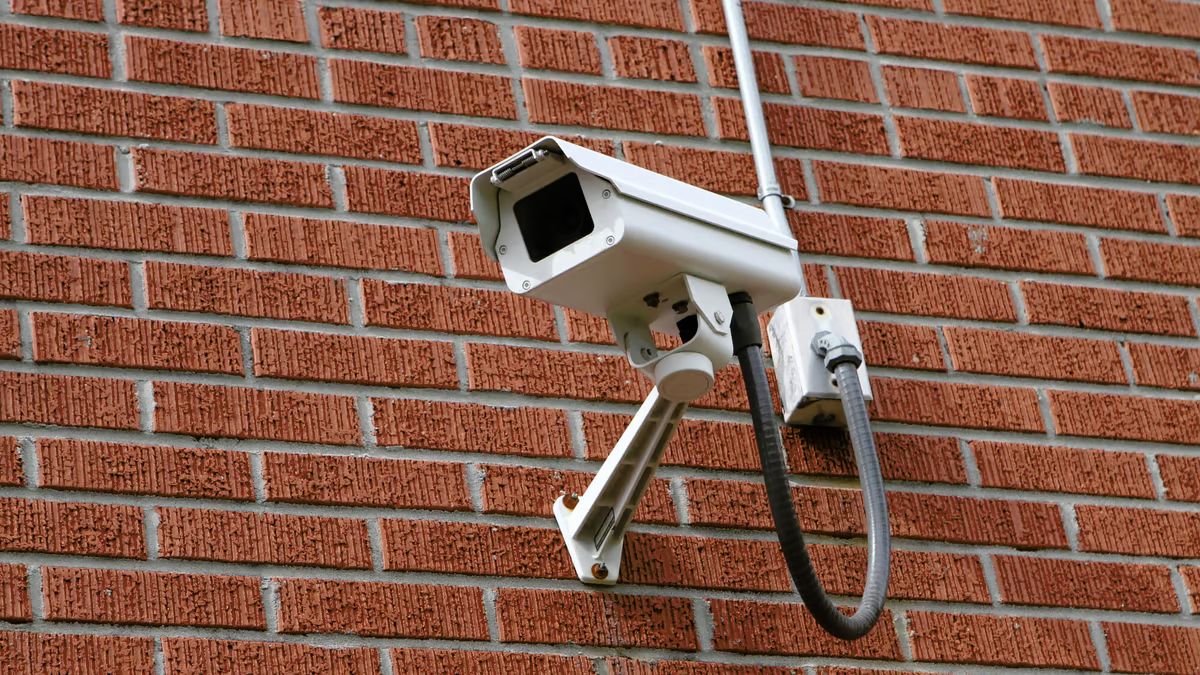

Home Security and Surveillance
How To Keep Bugs Off Security Cameras
Modified: August 26, 2024
Learn effective ways to keep bugs away from your home security and surveillance cameras. Prevent interruptions in your video monitoring with these helpful tips.
(Many of the links in this article redirect to a specific reviewed product. Your purchase of these products through affiliate links helps to generate commission for Storables.com, at no extra cost. Learn more)
Introduction
Welcome to our comprehensive guide on how to keep bugs off security cameras. In today’s world, home security and surveillance systems have become increasingly popular for homeowners seeking peace of mind and protection. However, these valuable devices can sometimes face challenges in the form of pests and bugs.
Dealing with bugs on security cameras is not only frustrating but can also impact the effectiveness of your surveillance system. In this article, we will explore the importance of keeping bugs off your security cameras, the common types of bugs that can affect them, and provide practical tips and solutions to prevent infestations.
Whether you have invested in a state-of-the-art security system or are planning to install one, understanding how to maintain and protect your cameras from bugs is essential for optimal performance and longevity. With proper care and preventive measures, you can ensure that your security cameras remain bug-free and deliver reliable surveillance for years to come.
Key Takeaways:
- Keep bugs off security cameras to maintain clear image quality, uninterrupted monitoring, and privacy. Regular cleaning, strategic positioning, and insect deterrents are effective preventive measures.
- Understand common bugs like spiders, ants, and moths, and use gentle cleaning, sealing entry points, and bug traps to prevent infestations. Consider professional bug-proofing solutions for persistent issues.
Read more: How To Keep Wasps Off My Security Camera
Importance of Keeping Bugs Off Security Cameras
Keeping bugs off your security cameras is crucial for maintaining their functionality and ensuring the effectiveness of your surveillance system. Here are some key reasons why you should prioritize bug prevention:
- Clear Image Quality: Bugs can obstruct the camera lens, resulting in blurry or distorted video footage. This can significantly impact the ability to identify faces, vehicles, or other important details in the recorded video.
- Uninterrupted Monitoring: The presence of bugs can trigger false motion alerts, which can be both annoying and lead to complacency. By keeping bugs away, you can reduce false alarms and maintain uninterrupted monitoring of your property.
- Longevity of Equipment: Bugs can cause damage to the delicate internal components of security cameras. Over time, this can lead to malfunctions or permanent damage, requiring costly repairs or replacements.
- Optimal Performance: Bug infestations on security cameras can interfere with key features such as night vision, motion detection, and remote access. By preventing bugs from nesting on your cameras, you can ensure that these features work optimally when needed.
- Preserving Privacy: Bugs on security cameras can compromise the privacy of your home. Unwanted intrusions by bugs in the camera’s field of view can raise concerns about unauthorized surveillance or invasion of personal space.
By taking proactive measures to keep bugs off your security cameras, you can ensure reliable performance, clear video footage, and peace of mind knowing that your surveillance system is operating at its best.
Common Types of Bugs that Affect Security Cameras
Understanding the common types of bugs that can affect security cameras is essential in developing effective preventive measures. Here are some of the most common pests to watch out for:
- Spiders: Spider webs are a common nuisance on outdoor security cameras, especially in areas with high foliage. Not only can spider webs obstruct the camera’s view, but they can also attract other insects, worsening the problem.
- Ants: Ants are attracted to the electrical components of security cameras, such as the wiring and power source. They can build nests or crawl into the camera housing, causing damage and interference with the camera’s operation.
- Bees and Wasps: These stinging insects can be particularly problematic if they build nests near or on security cameras. Their nests can obstruct the camera’s view and pose a threat to anyone attempting to remove them.
- Moths: Moths are attracted to the infrared lights on security cameras, mistaking them for a light source. Their presence can trigger false motion alerts, impacting the accuracy of the surveillance system.
- Flies and Mosquitoes: These flying insects can be a nuisance on outdoor security cameras, particularly during warmer months. Their constant buzzing and activity near the camera can distract from the captured footage.
It’s important to note that each region may have specific bug species that pose a threat to security cameras. Understanding the local fauna and common pests in your area can help you tailor your preventive measures accordingly.
In the following sections, we will explore various tips and techniques to prevent bugs from infesting security cameras and provide you with the knowledge to protect your surveillance system effectively.
Tips for Preventing Bugs from Infesting Security Cameras
Preventing bugs from infesting your security cameras requires a combination of proactive measures and regular maintenance. Here are some tips to help keep bugs at bay:
- Install Cameras Strategically: Position your security cameras away from potential bug attractants, such as bright lights, dumpsters, or dense vegetation. Keeping cameras elevated and out of reach can also discourage bugs from nesting on or around them.
- Seal Entry Points: Inspect and seal any gaps or openings near the camera mounting area. Use weatherproof sealant or silicone caulk to prevent bugs from infiltrating the camera housing.
- Remove Nearby Water Sources: Standing water can attract bugs, so ensure that any sources of standing water, such as leaky outdoor faucets or bird baths, are removed or properly maintained.
- Regularly Clean the Camera Lens: Use a soft, lint-free cloth and a gentle cleaning solution to wipe the camera lens regularly. Removing dirt, dust, and debris from the lens will help maintain clear video quality and discourage bugs from nesting.
- Keep Surrounding Area Clean: Regularly clean the area surrounding the security cameras. Remove fallen leaves, debris, or any other material that may provide hiding places or attract bugs.
- Use Insect Deterrents: Consider using natural insect repellents, such as citronella or peppermint oil, around the camera mounting area. These scents can help deter bugs from approaching the cameras.
- Regularly Inspect and Clean Outdoor Lights: Outdoor lights can attract insects, which can then migrate to your security cameras. Keep light fixtures clean and replace yellow or bug-attracting bulbs with LED bulbs that are less appealing to bugs.
- Invest in Bug Traps or Repellent Devices: Depending on the severity of the bug issue, you may want to consider using bug traps or electronic repellent devices specifically designed for outdoor use near security cameras.
By implementing these preventive measures, you can significantly reduce the likelihood of bugs infesting your security cameras and ensure that they continue to operate smoothly and effectively.
To keep bugs off security cameras, try using a bug repellent spray specifically designed for electronics. Make sure to follow the manufacturer’s instructions and avoid spraying directly onto the camera lens. Regularly clean the camera and surrounding area to remove any potential attractants for bugs.
Cleaning and Maintenance Techniques
Ongoing cleaning and maintenance are essential for keeping your security cameras bug-free and functioning optimally. Here are some effective techniques to maintain your cameras:
- Regular Inspection: Routinely inspect your security cameras to check for any signs of bug activity, such as nests or webs. Early detection can help prevent potential damage or interference with the camera’s performance.
- Gentle Cleaning: Use a soft brush or compressed air to remove any dust, dirt, or cobwebs from the camera housing and surrounding areas. Avoid using excessive force or harsh cleaning agents that could damage the camera’s delicate components.
- Camera Lens Cleaning: Clean the camera lens regularly using a lint-free cloth and a mild cleaning solution. Gently wipe the lens in a circular motion to remove smudges or fingerprints that can affect image clarity.
- Inspect Wiring: Check the wiring connected to your security cameras for any signs of damage or wear. Replace any frayed or compromised cables to prevent bugs from accessing the camera housing through the wiring.
- Trim Vegetation: Maintain a clear perimeter around your security cameras by trimming back vegetation regularly. This will help reduce the likelihood of bugs using plants as a bridge to reach the cameras.
- Monitor Light Sources: Keep an eye on nearby light sources, such as motion-activated lights or porch lights. Ensure that these lights are clean and free of bugs to minimize their attraction to the camera’s field of view.
- Keep Cameras Dry: Moisture can attract bugs, so ensure that your security cameras are properly sealed and protected from rain or sprinklers. If any moisture accumulates, dry the camera housing thoroughly to prevent bug infestations.
- Refer to Manufacturer’s Guidelines: Follow the manufacturer’s instructions and guidelines for cleaning and maintaining your specific security camera model. They may provide specific recommendations or precautions to ensure proper care.
By incorporating these cleaning and maintenance techniques into your routine, you can prolong the life of your security cameras, minimize bug-related issues, and ensure optimal performance.
Read more: How To Keep Bugs Off Porch Light
Professional Bug-proofing Solutions
If you’re facing persistent bug issues with your security cameras or want to take additional measures to ensure bug-proofing, there are professional solutions available. Here are a few options worth considering:
- Insect-Resistant Camera Housings: Some manufacturers offer camera enclosures specifically designed to repel insects. These housings feature insect-resistant materials and design elements that make it more difficult for bugs to enter and nest.
- Weatherproof Enclosures: Investing in weatherproof enclosures can help protect your cameras from the elements, including bugs. These enclosures create a barrier against pests and provide an extra layer of protection for your cameras.
- Ultrasonic Bug Repellents: Ultrasonic devices emit high-frequency sound waves that are inaudible to humans but irritating to insects. Placing these devices near your cameras can repel bugs without the need for chemicals or traps.
- Professional Pest Control Services: If you are dealing with severe bug infestations or repeated issues, consider contacting a professional pest control company. They can assess the situation, provide targeted treatments, and offer long-term solutions to keep bugs away from your security cameras.
When considering professional bug-proofing solutions, it’s important to research and choose reputable brands or service providers. Consult with security experts or seek recommendations from trusted sources to find the most suitable options for your specific needs.
Remember that while professional bug-proofing solutions can be effective, it’s still crucial to follow regular cleaning and maintenance practices to ensure the best performance and longevity of your security cameras.
Conclusion
Keeping bugs off your security cameras is vital for the optimal performance and longevity of your surveillance system. By preventing bug infestations, you can ensure clear image quality, uninterrupted monitoring, and the preservation of privacy. Regular cleaning, proper maintenance, and strategic positioning of your security cameras are effective measures in bug prevention.
Understanding the common types of bugs that affect security cameras, such as spiders, ants, bees, moths, and flies, allows you to tailor your preventive measures accordingly. Implementing steps such as sealing entry points, removing nearby water sources, and using insect deterrents can significantly reduce the likelihood of bugs infesting your cameras.
Regular inspection and gentle cleaning help maintain the cleanliness and functionality of your security cameras. By conducting routine checks, cleaning camera lenses, inspecting wiring, and trimming vegetation, you can prevent bugs from finding their way into your camera housing.
If you are facing persistent bug issues, professional bug-proofing solutions such as insect-resistant camera housings, weatherproof enclosures, ultrasonic bug repellents, or enlisting the help of professional pest control services can provide additional protection.
In conclusion, by applying preventive measures, conducting regular maintenance, and considering professional bug-proofing solutions when needed, you can ensure bug-free security cameras that continue to deliver reliable and effective surveillance for your home or property.
Frequently Asked Questions about How To Keep Bugs Off Security Cameras
Was this page helpful?
At Storables.com, we guarantee accurate and reliable information. Our content, validated by Expert Board Contributors, is crafted following stringent Editorial Policies. We're committed to providing you with well-researched, expert-backed insights for all your informational needs.
